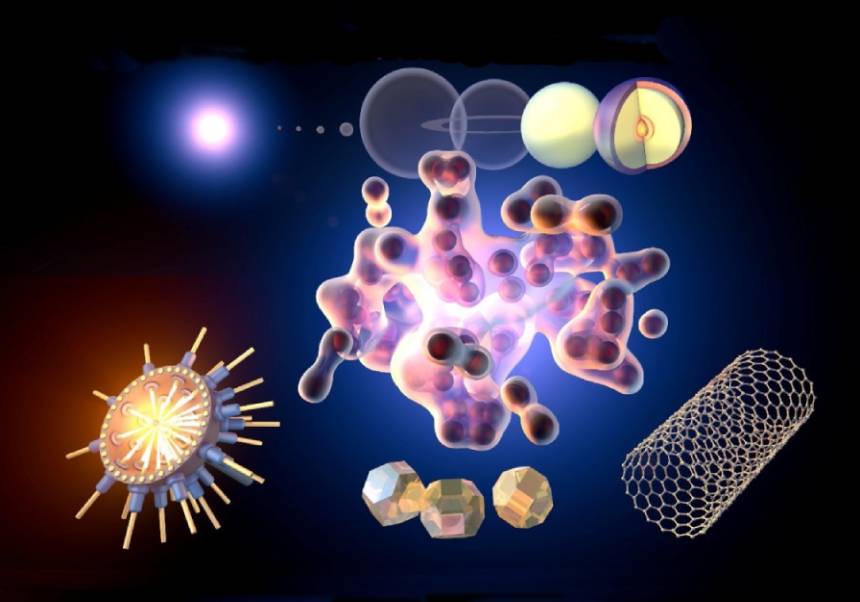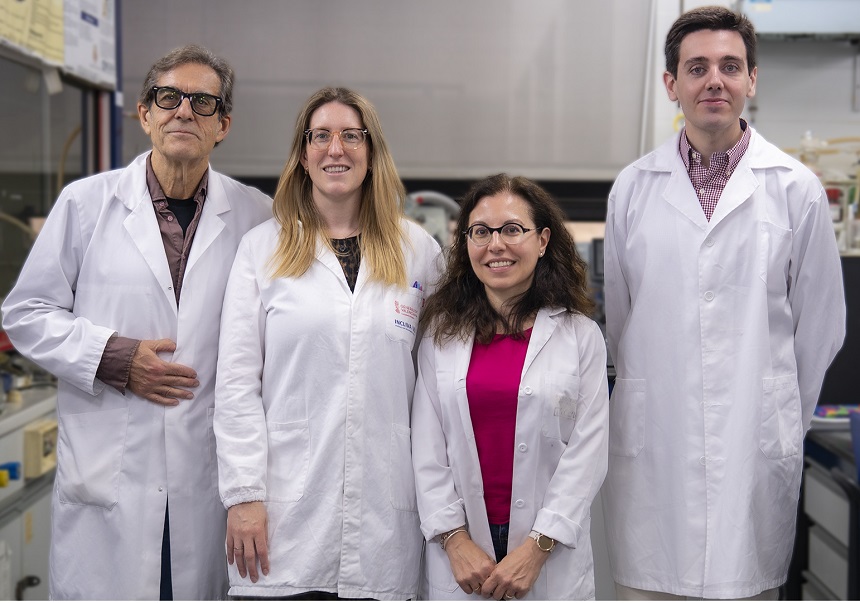Clinical trial begins to test the efficacy of a Valencian drug for myotonic dystrophy type 1
- Science Park
- December 3rd, 2024
,0.jpg)
ARTHEx Biotech, a biotechnology spin-off from the University of Valencia, has announced the administration of its experimental drug ATX-01 to the first participant in a clinical trial aimed at developing a treatment for myotonic dystrophy type 1 (DM1), a rare and devastating disease with no current cure, which shortens life expectancy and affects more than one million people worldwide. This marks the final phase of a long R&D process towards the approval of this new compound, poised to put Valencia's stamp on the science of drug development for rare diseases.
DM1, the most common form of myotonic dystrophy in adults, is an inherited, progressive condition primarily affecting the muscular system, but also the respiratory and central nervous systems. It is characterised by muscle mass loss and damage that can affect neurological, cardiac, respiratory, endocrine and digestive functions.
The genetic origin of this neuromuscular disorder lies in an abnormal expansion of the sequence of the myotonic dystrophy protein kinase (DMPK) gene which, upon transcription, forms unique RNA structures that sequester the MBNL (muscleblind-like) proteins involved in the disease’s pathogenesis. Most symptoms are attributed to a loss of MBNL function and raising these protein levels has shown therapeutic potential.
“A key aspect of this research’s success is that it proposes a therapeutic strategy that has been little explored until now”, explains Rubén Artero, head of the Human Translational Genomics research group at the University of Valencia. Years ago, his team validated the overexpression of MBNL proteins as a new therapeutic concept for DM1 and developed molecules that alleviated disease symptoms in preclinical models. The invention was patented and proof-of-concept studies in animals were published in Nature Communications.
ARTHEx Biotech, the University of Valencia spin-off to which the patent was licensed, has since been working on ATX-01, an anti-miR oligonucleotide designed to antagonise microRNA 23b (miR-23b), implicated in DM1 pathogenesis. The company recently announced the administration of this compound to the first participant in a randomised, placebo-controlled, double-blind Phase I-IIa clinical trial.
The clinical trial
The trial, named ArthemiR™, aims to assess the safety and tolerability of ATX-01, as well as its effect on disease pathophysiology, in a total of 56 participants with DM1.
“If the trial is successful, the molecule developed by ARTHEx could become the first disease-modifying drug for myotonic dystrophy type 1, the most common muscular dystrophy in adults”, says Beatriz Llamusí, ARTHEx’s executive scientific director and co-founder, together with Rubén Artero. “This experimental RNA-targeted therapy aims to increase MBNL protein levels in patients, as their dysfunction is linked to the most severe symptoms in people affected by myotonic dystrophy. The treatment also indirectly reduces DMPK gene expression, the mutant gene that causes the disease, so the combination of both factors is expected to have a significant therapeutic impact on patients”, adds the scientist and entrepreneur.
ATX-01 is the only therapeutic agent with a dual mechanism of action: it boosts MBNL protein production and reduces the amount of RNA structures that sequester these proteins. “By administering ATX-01 to the first participant in the ArthemiR™ trial, we are taking a step forward in our goal to address significant medical needs to alter the course of the disease”, explains Frédéric Legros, ARTHEx’s president and CEO. “We expect ATX-01 to lead to functional benefits for patients, offer a well-tolerated safety profile and improve quality of life”, adds Judy Walker, executive medical director of this UV biotech spin-off.
Myotonic dystrophy type 1 (DM1) is a disabling disorder that affects over a million people globally. It damages muscles and other tissues, leading to respiratory problems, fatigue, hypersomnia, cardiac abnormalities, severe gastrointestinal complications and cognitive and behavioural impairment. It typically manifests during adulthood and there is currently no approved treatment to slow its progression.
ARTHEx Biotech is a clinical-stage biotechnology company specialising in innovative medicines through gene expression modulation. The ArthemiR trial has been co-funded by the European Innovation Council (EIC) Accelerator programme.
File in: Ciencias Agrarias , Ciencias Tecnológicas , Ciencias de la Vida
















